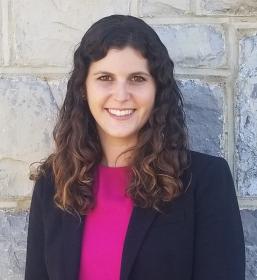News — Prioritizing mental health is not only important for adults, but for children as well.
“Stress and anxiety are normal parts of life that we all experience in order to keep us safe,” said , assistant professor of psychology in Virginia Tech’s College of Science. “Self-managing stress and anxiety is a key part to being human, and we can help children and teens learn these skills by modeling our own healthy coping strategies and trying to reduce avoidance.”
Part of managing stress and anxiety is learning how to navigate emotions. , director of the at Virginia Tech and professor in the Department of Human Development and Family Science, said parents need to allow children to feel both positive and negative emotions and work with them to understand how to regulate both.
“Often parents encourage positive emotions and discourage negative emotions,” Smith said. “Children may learn that negative emotions are ‘bad’ and thus try not to display them, which can lead to anxiety and stress because they are not dealing with their emotions and learning to regulate them.”
, director of the Child Study Center and the CALMER Lab, said the popular movies “Inside Out” and “Inside Out 2” — both exploring the importance of a range of emotions — are great references for parents. Her biggest piece of advice is to encourage discussion around emotions.
“Label emotions in yourself and others to help build your child’s emotional vocabulary and recognize that emotions — even negative emotions — are a part of life, are temporary, and in fact, can be good,” Breaux said.
Best practices for managing stress and anxiety in children
“Two best practices for managing stress and anxiety in children include helping the child develop healthy coping strategies and trying to reduce avoidance,” Kempker-Margherio said. “Adults can help children and teens develop healthy coping strategies by modeling their own, like narrating when they are taking deep breaths, helping the child build their own strategies, and rewarding or praising the child when they use their healthy coping strategies.”
Healthy coping strategies may include:
- Taking deep breaths
- Using sensory stimulation such as holding ice cubes
- Tightening then relaxing your muscles
- Playing with a pet
- Using positive self-talk statements (“I made a mistake, but now I know better for next time.”)
Children and teens who feel anxious may try to avoid what is making them anxious, such as trying to stay home from school or avoiding ordering their own food at restaurants. Kempker-Margherio said avoidance may reduce anxiety in the short term, but it increases anxiety in the long-term.
“When it is safe to do so, try to encourage your child to engage in the things that make them anxious, taking small steps at first and providing praise for their efforts,” Kempker-Margherio said.
When should parents reach out for professional help?
Here are signs that a child may be struggling to self-manage their stress and anxiety:
- Frequent irritability or outbursts
- Trouble sleeping
- Frequent complaints of stomachaches or headaches
- Dropping grades
- Consistent avoidance
“If these signs are starting to pop up, it may be helpful to reach out to a mental health professional,” Kempker-Margherio said.
“It’s less about any specific emotions, or even the intensity of them, and more about the fact this is a new experience that has continued for some time and is starting to cause problems for the,” Breaux.
Smith said some children will have more extreme emotional reactions than others, and parents should teach emotion regulation when a child has calmed down. However, if children cannot learn to control their emotions, a different approach might be needed to provide support to both the parent and the child.
“Parents are often dealing with their own mental health issues, making parenting even more difficult,” Smith said. “Supporting parents in their own mental health is crucial to supporting their roles as parents.”
About Breaux
Rosanna Breaux is an assistant professor in the Department of Psychology and is the director of the Child Study Center, as well as the CALMER (Coping skills And Learning to Manage Emotions Readily) Lab.
About Kempker-Margherio
Samantha Kempker-Margherio is an assistant professor in the Department of Psychology and is affiliated with the Child Study Center. Her work focuses on intervention development and evaluation for adolescents with or at-risk of externalizing difficulties and substance use problems.
About Smith
Cindy Smith is a professor in the Department of Human Development and Family Science. She runs the Children’s Emotions Lab, a research space for faculty, graduate, and undergraduate students to study young children’s emotional development and caregiver support.
Schedule an interview
To secure a live or recorded interview, contact Margaret Ashburn in the media relations office at or 540-529-0814.
MEDIA CONTACT
Register for reporter access to contact detailsArticle Multimedia

Credit: Virginia Tech
Caption: Samantha Kempker-Margherio, assistant professor of psychology in Virginia Tech’s College of Science.

Credit: Virginia Tech
Caption: Cindy Smith, director of the Children’s Emotions Lab at Virginia Tech and professor in the Department of Human Development and Family Science

Credit: Virginia Tech
Caption: Rosanna Breaux, director of the Child Study Center and the CALMER Lab at Virginia Tech

